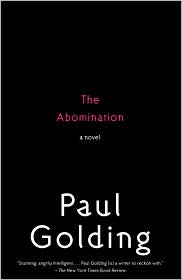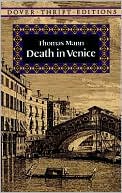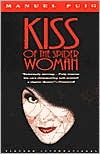The Abomination
Cruising the seamy underbelly of London’s gay scene, James Moore Zamora is as eager to repel men as he is to seduce them. Handsome, sophisticated, intelligent, and vain, beneath his immaculately maintained exterior lies an elaborate network of deeply embedded scars from a lifetime filled with betrayal and isolation. Born to negligent, self-absorbed parents and raised among upper crust society on a picturesque Spanish island, at nine-years-old James is sent off to an exclusive Catholic...
Search in google:
Cruising the seamy underbelly of London’s gay scene, James Moore Zamora is as eager to repel men as he is to seduce them. Handsome, sophisticated, intelligent, and vain, beneath his immaculately maintained exterior lies an elaborate network of deeply embedded scars from a lifetime filled with betrayal and isolation. Born to negligent, self-absorbed parents and raised among upper crust society on a picturesque Spanish island, at nine-years-old James is sent off to an exclusive Catholic boarding school in England. Met with savageness by his peers, and seduced by the twisted affections of his teachers, he soon develops a self-consciousness that passes for self-awareness and a profound cynicism that masks savage anger. Charged with linguistic precision, brutal honesty, and caustic wit, The Abomination is a disturbing yet electrifying account of one man’s tortured coming of age.Publishers WeeklyAlready a hit among British literary critics, Golding's debut novel is a fluently written but ultimately hollow, pretentious tale of emotional isolation, disconnection and spiritual malaise. Its protagonist, Santiago Moore Zamora, is a witheringly caustic, tragically hip, cosmopolitan homosexual of mixed Spanish and English parentage, who can't seem to form a meaningful relationship with any of the (many) men that he meets. He endeavors, earnestly, to figure out how he's become such an angry, embittered soul, reflecting first upon a pampered but stultifying childhood in Spain, and then upon his horrendous formative years at an unnamed exclusive English boarding school. Never having received the kind of emotional support and sustenance that he desperately craved from his shallow, self-involved parents, the young Santiago goes groping blindly for love and friendship within his new environs, with eminently disturbing results. He loses his virginity--at the age of nine--to Mr. Wolfe, a schoolteacher who adamantly asserts that he's not gay, only bisexual, and who proves to be even more needy and clinging than Santiago himself. Much of the rest of the novel, which concerns Santiago's subsequent dalliance with his music teacher, Dr. Fox, and his eventual, agonizing betrayal by his best friend, Louis Clifford Cross, seems intent upon exploring the manner in which the arrogant benightedness of the "straight" world and the catty superficiality of chic gay society tend to make life hellish for sensitive, discerning homosexuals. Golding's themes may be intriguing, but his presentation is disjointed, lacking in psychological resonance and emotional clarity. Santiago Moore Zamora emerges as a tiresome, smugly unsympathetic figure, whose tragic alienation seems little more than his just desserts. Reader's Subscription, Insightout (Bookspan's new gay and lesbian book club) selections. (Oct.) Copyright 2000 Cahners Business Information.\|
Now let us imagine that he wishes to take matters one step further, that he wants, having sized you up and liked the size, to give you a try, to try to spark a story which, even if it turns out not to need a formal ending, even if it dwindles halfway, which sometimes can be way enough, nonetheless warrants, in his opinion, the benefit of the doubt, the chance of a start. Well, then, he's going to have to catch your eye-however falsely-bright the lens may be upon your iris, however dilated the pupil at its crux, however retracted, however shot your deadened white may be with blood-he's going to have to catch it; he must. For it is with the eyeball that all stories of this order, since forever in our history, have started, and, despite all the setbacks, continue to start.\ Whatever scrutiny may have led up to this moment has been but preparation, research, vague hypothetical wanky musings akin to scanning the contact mag that I described. Incidental; largely irrelevant. Because here, not over there where he stands and peers, is where he needs to be. He can't hope to engage you from afar. We're not at the spacious Savoy Grill now, nor at the empty crush bar during boring acts at the Opera House, much less flying to Sydney, First Class, for Mardi Gras, with time and space and lots of champagne to hand. No. We're in the very underworld, and the place is packed. So he's going to have to come out for the thrill, in for the kill, and he'd be wise not to hang about.\ I know that no one likes to sin of over-eagerness, but nor should he, the man, prolong his game too much: for if he takes what seems like undue time to you, and makes you begin to fear that you're being messed about, or not wanted enough, and it all begins to rattle you, you might feel forced to pull yourself together and start to epitomize the only useful word in the French language; and you'll perform that word to perfection, like a star-among-stars, which you are, because you, after all, and after all the hard practice, can act it up and act it out and act it all the way to bloody oblivion. And the word, the word is this: In-sou-ciance.\ And such is yours, so subtle and chilled and acquired, like an oyster, that by the time that he, the miracle of miracles, deigns to materialize, he may find himself forced, retching very slightly, to swallow his pride. For by then, which is sorry-too-late, he may find that your eye, your vital historical eye, is otherwise occupied, or pretending so to be, or closed (which is just about allowed), or so close to the eye of some other man that it can no longer focus, never mind bequeath upon the former Mr Sexual Salt the favour of a sideward glance. Because you, my dear, are not cross-eyed but cross. And he, less fucked than fucked right over. But let's not be petulant at this late hour, three thirty, four, can't make it out; and who cares anyhow: you know it backwards-the hour when you must score even if it kills you, when you would trade for the germ of triumph, which is greedier and deadlier than the germ of lust, every racing corpuscle in your power. Admit: who wants to go on and on and on and on, living endless, unsuspected, undetected, unrequited, single-handed love affairs alone, night after night after night? Not you, you swear, no longer, no more. In which case, look at the whole thing another way, more dreamily, more bravely now, and put your precious untouchable dignity on the line for once. Reel back, rewind to the point where the target of your desire deserves, even as he stands apart from you, to know where he stands; for he has seen you and, as you have seen, passed by you and then observed you from a distance and liked you-yes, liked you-and he's decided, for richer, for poorer, for better, for worse, in sickness and in health, to come to you, and he has not a thing to lose and whole firmaments to gain and he's going to catch your eye, which darts like a comet, and he's going to entrap it and hold onto it, and devote to it the total, undivided best of all his stuff, till death or daylight do you part. And as far as he's concerned, which concerns you utterly, the rest of the club can die. And this is the point at which you have to banish all defensive foreign tongues and concentrate upon another word-trickily English this time, and murderous to enact-a word which yields and tugs and yields and tugs like the very valve that drives you, and the word is: Compromise. So do it. Now. And smile. And don't look sarcastic. And remember that just possibly, remotely, maybe, if you could see yourself from where, and as, you are now, you too might want to love you. And relax.\ Which, of course, you don't. You can't. It may be late and you may be drunk and you may still, marginally, be drugged, but as for smiling, well, you'd rather swill down a long glass of saliva. Yet you do manage, and without edge for once, to look at him as he advances: hotly, directly you look, and long enough to verify that although he doesn't smile either, he hugely stares back, as if ravenous. And you think to yourself that this is a man who could stand on a cliff and place his open palm beneath the small of your back and raise you like the feather of a gull and send you flying. And you see, as he draws away his can of beer and his Adam's apple gulps, you see the outline of the shadow of the orb of the back of his head, which in your mind's eye you have already sculpted a thousand times, tilt back, as if in agony. But you cannot help or redeem him. You have expired. And then, as you begin to turn your neck minutely away, by two degrees, in sheer black terrified panic, he does that thing which strong, modern, hopeful lovers do with their mouth, and he does it pointedly, unmistakably and without question at you, aiming at the outer ridge of your right, bared, clavicle. He blows. Like a god bringing you to life, he blows. And then he blows again. And that's when you know that you've won. Which is the very instant of your loss. Again and again.
\ Publishers Weekly\ - Publisher's Weekly\ Already a hit among British literary critics, Golding's debut novel is a fluently written but ultimately hollow, pretentious tale of emotional isolation, disconnection and spiritual malaise. Its protagonist, Santiago Moore Zamora, is a witheringly caustic, tragically hip, cosmopolitan homosexual of mixed Spanish and English parentage, who can't seem to form a meaningful relationship with any of the (many) men that he meets. He endeavors, earnestly, to figure out how he's become such an angry, embittered soul, reflecting first upon a pampered but stultifying childhood in Spain, and then upon his horrendous formative years at an unnamed exclusive English boarding school. Never having received the kind of emotional support and sustenance that he desperately craved from his shallow, self-involved parents, the young Santiago goes groping blindly for love and friendship within his new environs, with eminently disturbing results. He loses his virginity--at the age of nine--to Mr. Wolfe, a schoolteacher who adamantly asserts that he's not gay, only bisexual, and who proves to be even more needy and clinging than Santiago himself. Much of the rest of the novel, which concerns Santiago's subsequent dalliance with his music teacher, Dr. Fox, and his eventual, agonizing betrayal by his best friend, Louis Clifford Cross, seems intent upon exploring the manner in which the arrogant benightedness of the "straight" world and the catty superficiality of chic gay society tend to make life hellish for sensitive, discerning homosexuals. Golding's themes may be intriguing, but his presentation is disjointed, lacking in psychological resonance and emotional clarity. Santiago Moore Zamora emerges as a tiresome, smugly unsympathetic figure, whose tragic alienation seems little more than his just desserts. Reader's Subscription, Insightout (Bookspan's new gay and lesbian book club) selections. (Oct.) Copyright 2000 Cahners Business Information.\|\ \ \ \ \ Library JournalSantiago Moore Zamora's life has been one of loneliness and isolation. Raised by nannies and deprived of love from his preoccupied and self-absorbed parents, he has his first taste of devotion as the nine-year-old lover of a young teacher at his English boarding school before graduating to an older rector. When the teachers' misdeeds come to light, the ensuing scandal nearly results in Iago's expulsion. Iago's slender bond with his parents is completely shattered; as the book ends, we see him still looking for love through a rent-boy he invites to his flat. Golding's undeniable gift for descriptive, florid language (often to convey some pretty distasteful things) may obscure the fact that at the core this is a pretty anemic mixture of schoolboys in disgrace with family soap opera on the sidelines. Though it is being hailed as an important new gay novel, gay men may well resent the simplistic situations and the novel's ineffectual hero. Buy according to demand.--Marc Kloszewski, Indiana Free Lib., PA Copyright 2000 Cahners Business Information.\ \ \ Louis Bayard[A] stunning, angrily intelligent first novel . . . The steaming, winding locomotive sentences into which he packs his words invariably recall Proust . . . A writer to reckon with . . .\ —New York Times Book Review\ \ \ \ \ Kirkus ReviewsAn intense, scrupulously eloquent debut, by a young English writer, charts a secretive homosexual's progress through adult hypocrisy and deceit to a state of alienation so pervasive that he essentially condemns himself to disillusionment and sardonic despair. Santiago Moore Zamora's encounters with a laconic and seductive"escort" frame his extended recall of an itinerant childhood, spent mostly apart from his preoccupied Spanish mother (whom he adores) and cold-fish English father. There's a succession of boarding- and secondary-schools, varied only by boring summer holidays and compulsory"army manoeuvres" (he owes such allegiance to both his countries of origin) preparatory to entering Oxford—and of furtive sexual encounters with two (amusingly named) male teachers, the indignantly"bisexual" Mr. Wolfe and the ardent, adipose music master Mr. Fox ("this great blancmange of a man"), producing both"James Moore's" notoriety on his several campuses, and imbuing him with an all-too-predictable hunger for love. Golding can certainly write. His sinuous Jamesian sentences offer pleasures fortuitously disproportionate to the frequently unpleasant content, and he has an impressive gift for graphic physical imagery (during piano practice, Mr. Fox's"fingers . . . pounce, and properly mount mine, and writhe upon them momentarily"). Nevertheless, he's moving in on turf long since occupied by Edmund White and Alan Hollinghurst, and his (really) underplotted debut offers nothing new. Furthermore, the virtual absence of dialogue (Golding uses indirect discourse instead) over 400-plus pages effectively preventsthecreation of any credible characters other than the annoyingly (if understandably) self-absorbed narrator-protagonist. Good writing pretty much wasted on an undeveloped premise.\ \








